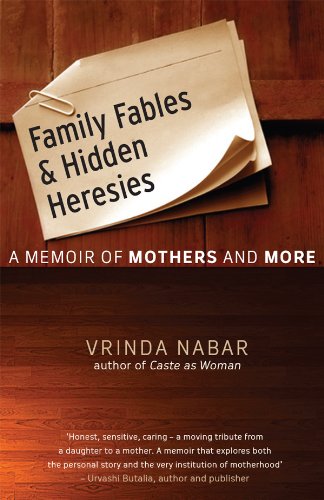A mother-daughter relationship has always been a complex one to decode given its subjectivity. But Vrinda Nabar’s Family Fables & Hidden Heresies: A Memoir of Mothers and More manages to strike that right balance between myopic proximity and clinical objectivity. The book is primarily about Nabar’s mother Mira whom she calls Ai, besides Aji and Sundiamma (paternal, mater-nal grandmothers respectively). Nabar traces the lives of these three women with the help of Ai’s meticulous recordings in a journal and through the numerous letters she wrote to her husband. Deconstructing the lives of Aji, Sundiamma and Ai, the author tries to juxta-pose the saga of their aborted dreams which run parallel to the events leading to the coun-try’s freedom. These women can be seen resis-ting patriarchy, tradition and fate to carve out their own ‘rebellious’ version of individuality.
Aji, who married a widower with a child, lacked the resources to protest and thus accep-ted the choice thrust on her with great dignity and fortitude. Bound to tradition she could hardly find a redeemer in her husband Ajoba. Her clinging to Anna, her second son, while bidding farewell to him or her outburst at the death of Nana, her first-born, have a cathartic effect. Hers was a life of unspoken grievances, unprotested burdens and a destiny which she endured and submitted to. Nabar vividly brings home what life is like for women in a society which is steeped in orthodoxy and conservatism.
December 2012, volume 36, No 12

